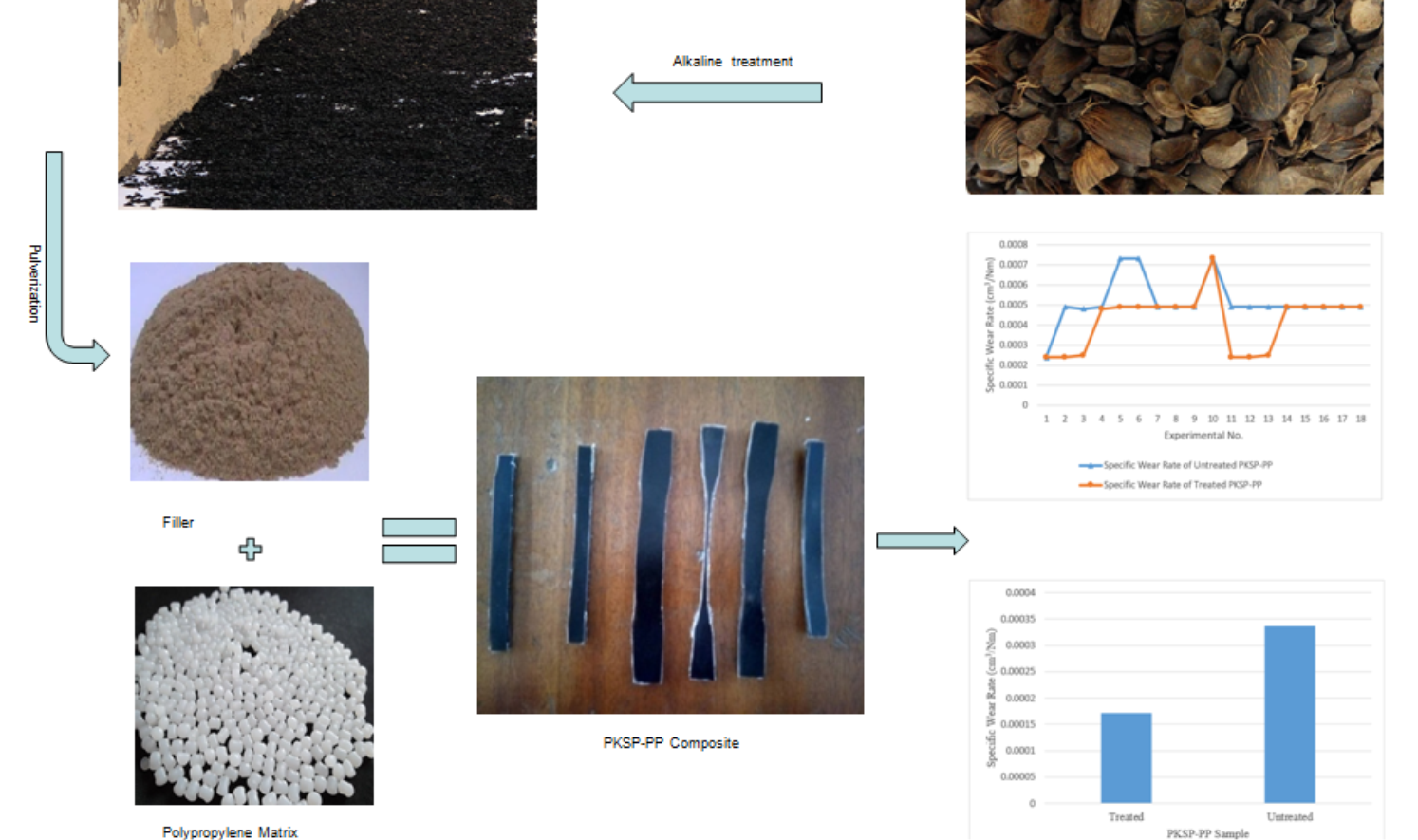Effects of Sodium Hydroxide Treatment on the Wear Resistance of Palm Kernel Shell Particles Reinforced Polypropylene Composite for Piping Application
Keywords:
Palm kernel shell particle, natural fiber reinforced composite, Taguchi robust design, Sodium hydroxide treatment, Wear resistance.Abstract
Natural fiber-reinforced composites stand as a better substitute for synthetic fiber-reinforced composites because of their numerous benefits, such as low cost, low density, and biodegradability. This study examined the effects of sodium hydroxide treatment on the wear resistance of palm kernel shell particle reinforced polypropylene (PKSP-PP) composite and determined the optimal composition of palm kernel shell particles (PKSP) and polypropylene (PP) for an optimum wear resistance of the composite. PKSP were subjected to NaOH treatment, washed, dried, crushed and sieved to a fine particle size of 53µm. Taguchi L18 Orthogonal array was employed in the design of experiments, considering PKSP, PP, wax, stabilizer, plasticizer and stearic acid as the materials, and the smaller-the-better signal-to-noise ratio was used in the analysis of the wear rate of PKSP-PP composites. The results showed that the optimal materials formulation that minimized the wear rate of PKSP-PP composite is A1B2C1D2E1F2 for the treated composite and A1B1C1D1E1F1 for the untreated composite. The treated PKSP-PP composite showed a better wear resistance than the untreated PKSP-PP. The findings of this study revealed that NaOH treatment improved the wear resistance of PKSP-PP; and the lower PKSP content, the better the wear resistance. This study concludes that alkali treated PKSP would be a useful material for reinforcement of PP for piping applications and in the other polymer composites applications where good wear resistance is highly needed as the quality characteristic of the products.


